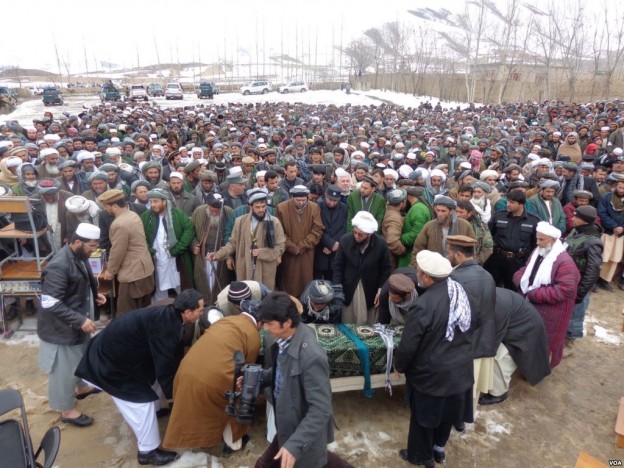Ahmad Zia Rahimzai – Writer and Analyst
It is a fact now that the Taliban as an armed opposition of Afghan government are not united as past, it is neither a secret nor a new incident. But how will this division affect the hesitant Afghan peace process and what will its results be?
Last week the media reports regarding a gathering of a number of Taliban former leaders and commanders with the aim of peace negotiation and inter-Afghan reconciliation under the supervision of Taliban previous Finance Minister Mullah Agha Jan Motasim on the one hand and the reports of assassination of Maulavi Abdul Raqib Takhari, Taliban former Minister of Refugees and a participant of Dubai meeting by unknown militants in Peshawar, Pakistan on the other hand were significant news.
Maulavi Abdul Raqib was considered a moderate and knowledgeable personality. After his assassination Mullah Agha Jan Motasim in a press release declared that Maulavi Abdul Raqib hoped a peaceful Afghanistan and both of them were trying to make the newly started peace negotiation between Afghan government and Afghan Taliban in Dubai successful.
But is not clear who and why assassinates or imprisons personalities like Takhari who try for peace and reconciliation and are well knowledgeable scholars and thinkers?
It is said that Maulavi Abdul Raqib Takhari had just returned to Peshawar from Dubai meeting on Afghanistan peace process while he was assassinated.
The Chain of Mysterious Assassinations
Maulavi Abdul Raqib Takhari is not the only person being sacrificed for peace and reconciliation in Afghanistan, but there are many other incidents making it apparent that all Taliban leaders keen for peace process are assassinated, captured or suddenly disappeared.
The first suspected of these assassinations is Pakistan and cells within its military and intelligence who don’t want peace and stability in Afghanistan. But in the ongoing complicated intelligence war some other parties and even the Afghan government and US are also those in the long list of suspected parties.
The internal differences between Taliban are also suspected as a cause of such assassinations, whatever the cause of such discrepancies is, it’s clear that before Maulavi Abdul Raqib other prominent Taliban officials and figures and even Taliban former Finance Minister Mullah Agha Jan Motasim were shot in daylight in Karachi who was later sent to Turkey with the assistance of Afghan government for his treatment who still lives abroad and is trying for peace and negotiations.
Who Oppose Peace?
Whoever the assassin of Maulavi Abdul Raqib Takhari is but it is not to be doubted that it has greatly harmed the peace negotiations especially the process started in Dubai under the leadership of Motasim Agha Jan and Afghan High Peace Council (HPC) with a group of Taliban.
The question is that what will be the results of such assassinations and attacks? And how will the half-alive peace and negotiations process go ahead?
Afghan government is also to be blamed for this, a group of analysts observe that Afghan government publicly talks about their commitment to peace and reconciliation but they have never contacted the known parties for peace, some of the analysts even consider this to be the reason of continued assassinations because the government tries to separate some groups from Taliban and start negotiations with them to their will. But in this situation the leadership and groups who think are only authorized to talk, blame the ones who are separately holding meetings with the government of treason and betrayal and become suspicious of them.
If we even accept that Pakistan military officials and intelligence cells are behind these assassinations and do not want the peace process to go ahead without their consent again the responsible parties are Afghan government and US, because despite identification of source of the problem waste their time in talks those groups in bilateral and trilateral meetings and this way instead of pressing Pakistan for peace and negotiations give them one-sided privilege.
In overall it is clear that neither US nor Afghan government and Pakistani military and government officials honestly work for peace as the Afghan nation hopes and the biggest prices is also paid by the Afghan nation and those who due to their religious and national duty want to put an end to the one-sided imposed on Afghanistan.

